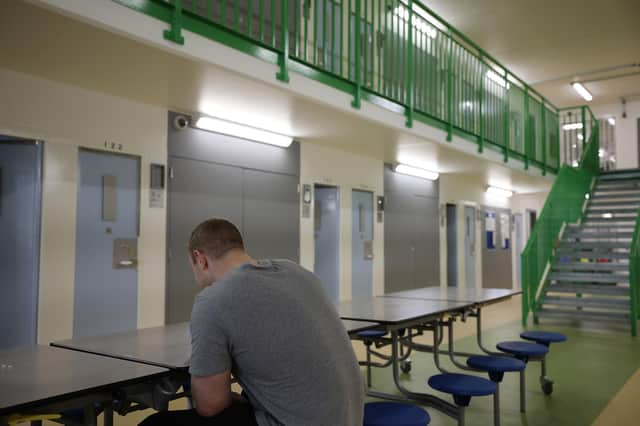Scotland's new sentencing guidelines for under-25s recognise that it takes time to mature – Karyn McCluskey


It’s a hugely funny collection of aphorism, pithy Scottish sayings most of us have been on the receiving end of when growing up. “Dinnae expect onything an ye’ll no be disappointed” or “You mark ma words!”
These used to be delivered at regular intervals by sweet-looking elderly relatives, usually followed by some eye-rolling or muffled laughing from those on the receiving end. It’s a great book.
Advertisement
Hide AdAdvertisement
Hide AdOur Scottish language is peppered with sayings about how we believe someone will turn out. “Him! I kent his father” or “Jist like his brother” (or sister or mother). “Spare the rod, spoil the child” can be traced back to a 17th-century poem by Samuel Butler, but may go even further back.
Thankfully most of this thinking has lost its traction with evidence around impact of punishment on children and a growing realisation that children have a right to grow up without physical assault. Scotland was the first nation in the UK to outlaw corporal punishment.
Last week saw a further development in how we address those young people who end up in the justice system. Guidelines have been developed around sentencing of people under 25, understanding that the brain takes some time to mature and young people have the opportunity to change as they develop intellectually and emotionally.
I expected more opprobrium when this was announced and yet it seems to have landed in a country where we understand some of the compelling evidence around the impact of harm that so many young people have experienced in their lives. For the most part, we seem to appreciate the role of neuroscience and why it means we need to take a very individual approach when sentencing young people.
This is a significant step change. It means that whilst the harm done to the victim must rightly be front and centre, a focus on rehabilitation should also be a central consideration. This has to be good for us all. We cannot write off young people, it’s not scientifically right, morally right or economically right.
I know many people will have in their minds the exceptional, terrible cases where young people have committed an abhorrent offence. These are unusual and extreme and in these cases secure care and custody will be required. We will be faced with these terrible events over the years, and we are equipped to manage those who present the danger of serious harm. But this should not dissuade us from investing in rehabilitation and striving for change.
There are so many beacons of hope in Scotland – people who have gone through the justice system, but changed their lives. Livingston manager David Martindale shared his journey from prison to success in the football world on our latest Justice, Disrupted podcast.
His is a story of hope, change and the positive impact of education. It’s worth a listen. I meet people in every walk of life that have been given the opportunity to change, they often whisper the events that led them to the justice system and those that led to change.
Advertisement
Hide AdAdvertisement
Hide AdMaybe Bill Duncan will write a new book, with the new sayings about the country we live in.
Karyn McCluskey is chief executive of Community Justice Scotland
